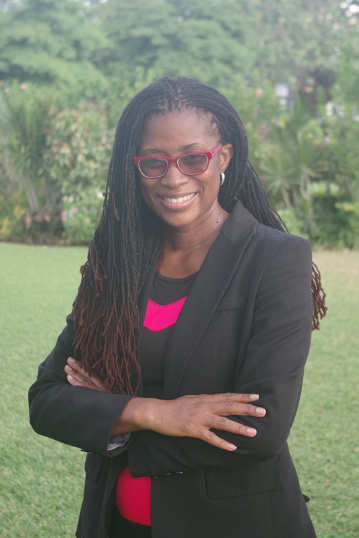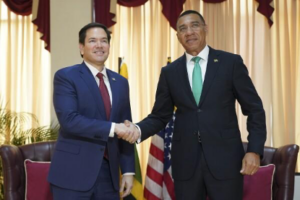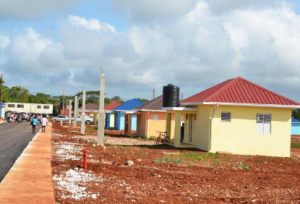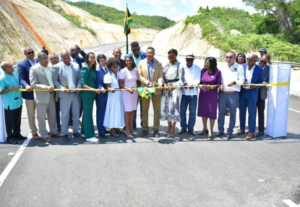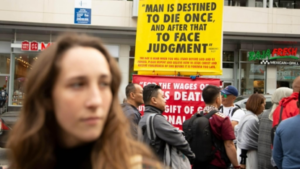Given the dire need for healthcare services in Jamaica, one doctor has recommended that churches find creative and sustainable means to help provide care for the people, even if this means having members travel on a donkey or in a cart to get to remote communities.
General practitioner Dr. Arlene Blake McCain made the suggestion against the backdrop that there are churches that operate mobile clinics and fully staffed health facilities which assist those who are ill, but not all churches are in a position to fund such ventures. This, she believes, does not mean that they cannot make their contribution in addressing the current health crisis, where public health facilities are being stretched to the extreme in dealing with a myriad of patients.
“We have to be very practical right now; the world’s oil crisis is [getting worse] because of the wars that are happening, and so the price for gasoline just to fuel a mobile bus will hinder what we can do, efficiently and consistently,” she said.
“At this juncture in this post-pandemic environment that we live in, we have to think of other ways as well in providing this mobile service. In some communities, we may have to use a donkey, or a cart, or we may have to have satellite locations in sub-rural communities. In other communities, low energy consuming vehicles can be used,” she told editors and reporters during the Freedom Come Rain Newspaper’s Freedom Talk panel discussion on Thursday.
There are several churches that are offering health care as part of their outreach to the communities. Some host health fairs periodically where doctors, nurses and other healthcare workers are brought in to do check-ups, while others offer these services daily through a health centre that is fully funded by their members and donors. In 2015, the Braeton Seventh Day Adventist Church in St. Catherine opened its mobile medical and dental clinic after realising that the residents they served were experiencing difficulties in attending a clinic at the church due to financial challenges.

Dr. Blake McCain, who has worked for 17 years in both public health and as a private practitioner, believes a multi-faceted approach should be considered to ensure that these outreach projects are maintained. This means collaborating with different government agencies and even persons within the diaspora.
“To sustain things that we are doing through the church, we have to have money to do so as well, and one of the ways that the church can, not just facilitate but maintain and sustain it is through interaction with the diaspora. There are organisations in the diaspora in the different continent. They are usually very willing to contribute to these kinds of things once there is transparency in the organisation of these ventures and there is transparency on all levels, the persons in the Diaspora will contribute,” she shared.
The medical official also pointed to the Jamaica Constabulary Force (JCF) as a potential key partner in assisting the church to reach its targeted population as it seeks to improve health care in Jamaica. She said the proposal might seem utopic, but given the fact that the security force already has access to the community, this approach could work.
“Allow them to be apart of it, because in so doing, that’s how we are going to save on the costs of certain things and that’s how we will probably get a better result as well, because then you have the JCF involved, you have the church involved and you have the medical professionals involved. You would be very surprised the kind of harmony that you can get amongst the three, because the JCF often has an idea of what is going on in the community. We are not just talking about crime now, but they understand what is happening. The medical professional is seeing someone and getting some insight into their mental health issue which is probably triggering the crime process, that is an example right there. Then you have the church that is going to provide the spiritual aspect [and] provide that kind of care. So its health, its spiritual, its everything,” she explained.
Dr. Yvonne Munroe, who for many years worked in the Family Services Unit at the Ministry of Health, pointed to the fact that social mobilisation is one of the areas the Ministry has highlighted for improvement in its 2019–2030 strategic ten-year plan to improve the health sector. She said the expectation is to encourage social mobilisation, not just within the public health system, but through other stakeholders.
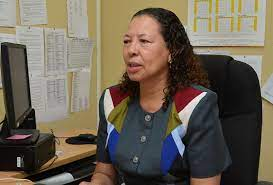
“There are some amount of activities, where even if the person cannot visit the health centre for lack of funds, we have the community health aides, who is the eye for the health system, going into the community, interfacing with the various persons, whether it is the mother who is pregnant, children who are ill, the elderly, all these things, so they would report back to the health sector, so the doctor and the staff can go visit a particular person,” she said.
Dr. Munroe, however, admitted that things do not always happen as they should and agreed that the contribution of the church would help to improve access to health services in the community.
Petagaye Forbes-Robinson, a mother of a child with autism who has faced challenges in accessing health services for her son, supports any initiative that will see the church playing a greater role in providing healthcare options to members of the community.
“Each one help one. We need to come together and we will see much changes come into play,” she said.

